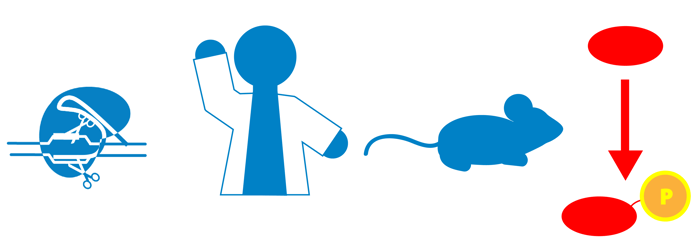This post was contributed by guest blogger, member of the Addgene Advisory Board, and Associate Director of the Genetic Perturbation Platform at the Broad Institute, John Doench.
A genetic screening project can be a tremendous undertaking, producing a wall of results that can only be described as bigly. But such a project should not be undertaken lightly. Whether executed in arrayed or pooled format there are of course materials costs, regardless of who is paying for them. More importantly, there’s the opportunity cost of your time; an investment of months of your life that may end with little more than an Excel spreadsheet of random numbers that’ll leave you, well, #sad.
Why the kinome?
While properly designed perturbations – in the case of screens using CRISPR technology, gRNAs to knockout genes – are essential screening components, the model system and the assay are just as critical for success. Sometimes, you might have a few positive control genes on which to test the validity of your biological model and the technical performance of your assay. But, in many discovery-oriented projects, the whole point is that there are no positive controls for this phenotype – you’ve developed a new model or a new assay or both, and you have no idea what genes are involved. Or you don’t know how well your assay will scale. Or you don’t have enough cells to execute genome-wide perturbations. So, while some might argue that the only way to do something is to do it huge, there are times when a more incremental approach is prudent.
What's in the CRISPR kinome library?
Thus, we are glad to provide CRISPR libraries targeting the mouse and human kinomes. While any subset of the genome is limited by definition, the kinome is a well-annotated collection of genes that can provide a useful starting point for developing a model and an assay to test that model. Both libraries are available from Addgene as pools provided in two sets, each with 4 gRNAs per kinase, so screens can be performed with either 4 or 8 gRNAs per gene. Further, the pools are available in two vector formats: all-in-one (lentiCRISPRv2, expressing both Cas9 and an individual gRNA from this single vector) and guide-only (lentiGuide expressing only an gRNA, for use with cells that already have Cas9). Each library consists of approximately 3,000 gRNAs, as opposed to the 70,000 or more gRNAs found in genome-wide libraries, and thus can be screened in pooled format at a more-typical scale of tissue culture while still offering the potential for true biological insight.
Pooled and individual plasmid formats
A first for a library at Addgene, you can also order the individual lentiGuide gRNA plasmids targeting the human kinome. These plasmids contain the same 3-4 gRNAs found in the first subset of the pooled library. The individual plasmids will be useful when screening for phenotypes, such as cell-non-autonomous effects, that do not lend themselves to screening in a pooled setting. The individual plasmids will also be useful for imaging or gene expression assays necessitating the screening of individual plasmids separately. Additionally, this set can be used for cherry-picking individual gRNAs that score as hits in pooled screens, facilitating more rapid follow-up.
We hope the biological community will find these reagents to be useful. Happy screening!
Many thanks to our guest blogger, John Doench!
 John Doench is the Associate Director of the Genetic Perturbation Platform at the Broad. His mom always told him that he has the best words and fingers of a completely normal size.
John Doench is the Associate Director of the Genetic Perturbation Platform at the Broad. His mom always told him that he has the best words and fingers of a completely normal size.
References:
1. Doench, John G., et al. "Optimized sgRNA design to maximize activity and minimize off-target effects of CRISPR-Cas9." Nature biotechnology (2016). PubMed PMID: 26780180. PubMed Central PMCID: PMC4744125.
Resources on the Addgene Blog
- Learn to Conduct Genome-wide Screens with CRISPR/Cas9
- Get John Doench's Tips on gRNA Design
- Check Out News Ways to Use CRISPR for Single Base Editing
Resources on Addgene.org
Topics: CRISPR, CRISPR Pooled Libraries







Leave a Comment